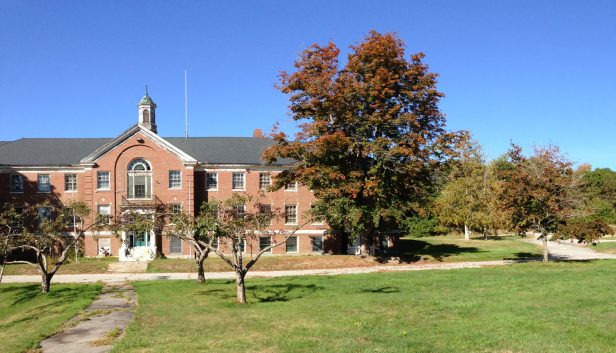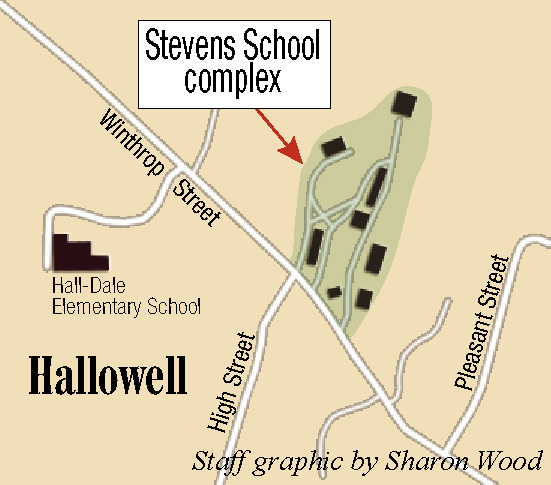HALLOWELL — The City Council has approved a Portland-based affordable-housing developer’s Credit Enhancement Agreement request for a fixed tax rate to support the development aimed at the elderly.
The vote Tuesday night authorizing the tax deal was 6-1. Ward 5 councilor Lisa Harvey-McPherson was the lone dissenter.
Community Housing of Maine asked the council to approve a tax rate of $17,400 per year for 20 years, or $348,000, helping to ensure that enough money is available for the nonprofit organization to manage and maintain the property, located at Stevens Commons.
The housing group also asked Hallowell to return to the project any required property taxes above and beyond $17,400 annually for a period of 24 years, beginning at the time the building is completed and the property is occupied. The city also will reap the rewards of elderly residents of the housing project spending money in Hallowell and being a part of the wider community.
“We hope it’s a catalyst for other development on the Stevens Commons campus,” said Bree LaCasse, project manager for Community Housing of Maine and the manager of the Central Commons effort.
The organization signed a purchase option last year for a multimillion-dollar renovation of the 25,000-square-foot Central Building on the 54-acre campus into affordable housing for the elderly. There will be 29 units of permanent affordable housing for seniors 55 and older. It will be a reuse project that completely rehabilitates one of five historic buildings on the Stevens Commons campus.
The Stevens Commons campus, formerly the site of Stevens School, was built in the late 1870s as a boarding school for girls. In recent years it was occupied by state offices and other agencies. Matt Morrill, of Mastway Development, paid the state $215,000 for the campus in April 2016; the state had tried to sell it for 10 years.
Harvey-McPherson, a member of the council’s finance committee, said the council told Morrill when he first acquired the property that the investments in the campus by the city — including a $238,000 forgivable loan — would affect potential credit enhancement deals in the future. She said she didn’t like the city making less than half of market value in annual taxes from this project.
“I can see this project having value at a future date,” Harvey-McPherson said. “I think this is the wrong (project) to do right out of the gate.”
The other councilors said they appreciated Harvey-McPherson’s concerns; however, they all thought the time is now for a project of this magnitude.
The city’s comprehensive plan of 2010 stipulated that 10 percent of all new housing developed over a decade be affordable, and this project would be the first affordable housing for seniors to come to Hallowell since the Cotton Mill housing complex opened several decades ago. Ward 3 councilor Kara Walker said it was clear in 2010 that Hallowell residents found affordable housing important.
According to LaCasse, the development would include 13 studio and one-bedroom units available to residents with incomes 50 percent or less of the area median income — $21,700 for an individual and $24,800 for a family of two. The remaining 16 one-bedroom units would be available to people with incomes 60 percent or less of the area median income, which is $26,040 for an individual and $29,760 for a family of two. Homeless veterans will be given preference in 20 percent of the units.
If the plan moves forward, LaCasse said, construction would begin in September and should be completed by September 2019.
Ward 1 Councilor Maureen Aucoin said she thinks Morrill’s ability to repay the loan or have it forgiven would be much harder without the Central Commons development.
“If we don’t approve this project, I think we set Matt up for failure with his loan,” Aucoin said.
At-large Councilor Lynn Irish echoed those sentiments and said she can’t foresee any economic development happening in Hallowell without the city contributing.
Since acquiring the property on Winthrop Street, Morrill has signed an agreement with Community Housing of Maine, overseen the reconstruction of several roads within the campus, made numerous infrastructure improvements with the help of money from a voter-approved bond and signed nearly a dozen commercial leases in one of the buildings. He also donated a parcel of land where the city’s new fire station is being built.
“Without infrastructure upgrades, a project like ours just wouldn’t be possible,” LaCasse said. “That investment paved the way for this project.”
Community Housing of Maine, a statewide nonprofit organization, has developed properties in Kennebec County since 1995, in accordance with its mission to develop and provide housing for low-income and disadvantaged people as well as workforce and senior housing.
During a public hearing about the proposal, Hallowell resident Frank O’Hara said he strongly endorses the project, in part because of the options it would provide for seniors wanting to stay in or move to Hallowell.
“This is a low-cost alternative for people who’ve been in Hallowell and to keep people in Hallowell,” he said. “(Hallowell) is a place where there’s not a lot of choice.”
O’Hara, a municipal planning and economic development expert, said Community Housing of Maine completes high-quality projects, and he said this one would be an anchor at Stevens Commons.
“It’s going to make the next investment (at Stevens Commons) more likely,” O’Hara said.
Andy McPherson, a former Hallowell mayor and councilor, said he’s concerned that the city wouldn’t be receiving the full taxable value of the project — around $40,000 per year — considering other taxable properties in the city pay their full value and typically see their taxes increase from year to year.
“I’m standing here for the homeowners, because the taxpayers have already paid,” McPherson said in reference to a $2.3 million bond package approved by voters last year that included funding for improvements at Stevens Commons. “I’m sure the next people coming (to develop in Hallowell) will be looking for this (deal).”
Community Housing of Maine completed a similar project in 2011 in Bangor, converting a former dormitory of the Bangor Theological Seminary into 28 units for the elderly, now known as Maine Hall. Similar projects, such as Central Commons in Hallowell, take about two years to complete.
The Cony Flatiron Senior Residence in Augusta opened as housing for the elderly in the summer of 2015. Because that $11 million project by Housing Initiatives of New England was partially funded by $6.8 million from the federal Low Income Housing Tax Credit Program, residents who make more than predetermined incomes each year can’t live there.
The council’s regular monthly meeting is scheduled for 6 p.m. Monday at City Hall. The agenda for the meeting will be released later this week.
Jason Pafundi — 621-5663
Twitter: @jasonpafundiKJ
Send questions/comments to the editors.





Comments are no longer available on this story